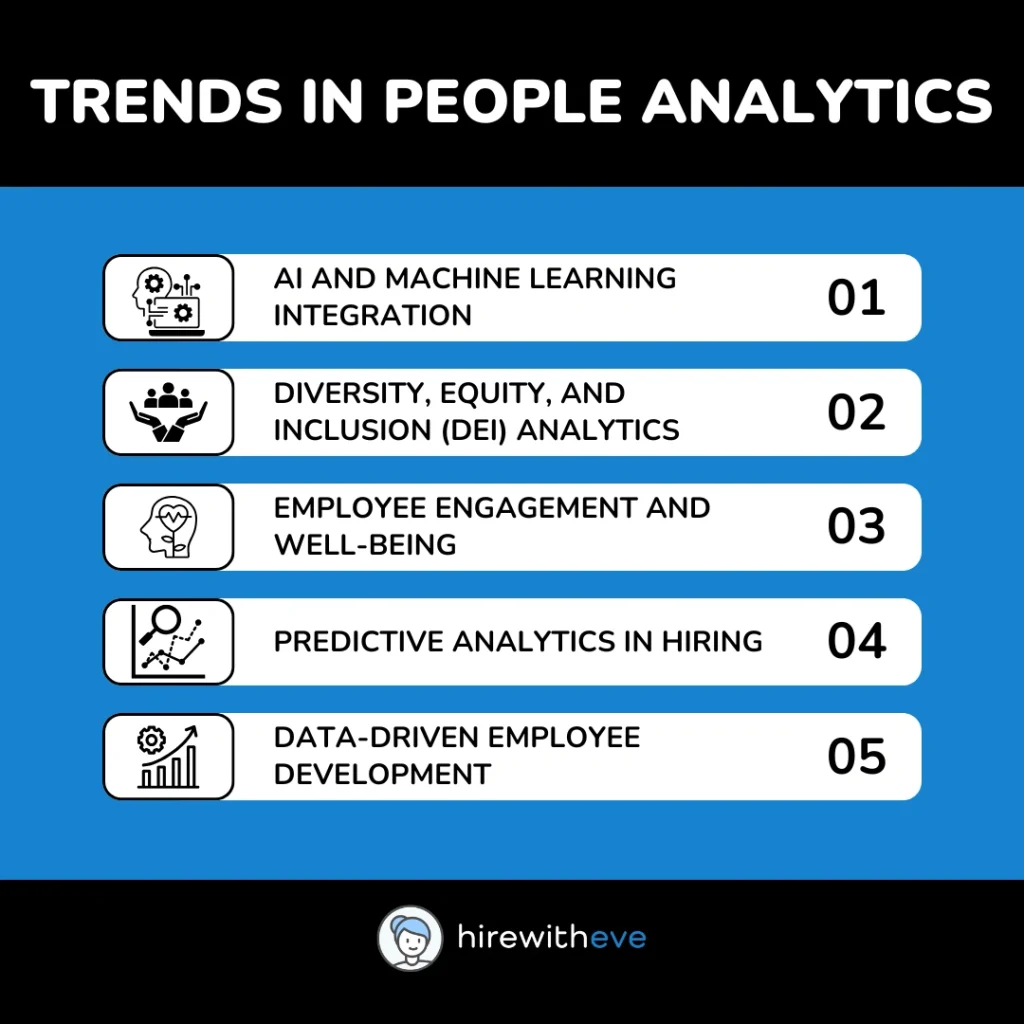What Is People Analytics? Definition, Trends, & More

In today’s rapidly evolving business environment, making data-driven decisions is no longer optional — it’s a necessity. For talent acquisition specialists and HR managers, people analytics is becoming one of the most powerful tools to achieve this goal. By leveraging people analytics, companies can not only streamline hiring processes but also improve employee engagement, reduce turnover, and foster a more inclusive workplace.
But what exactly is people analytics, and why has it gained so much attention in the world of HR? This blog will explore the definition of people analytics, its latest trends, and its significant impact on hiring practices.
Defining People Analytics
People analytics is the practice of using data to manage, improve, and optimize the way organizations hire, retain, and develop their workforce. This method involves gathering data from various HR systems, analyzing it, and then applying the insights to make informed decisions.
Unlike traditional HR practices that are often based on subjective opinions or intuition, people analytics relies on hard data to back decisions. This shift helps HR professionals identify patterns, predict outcomes, and align their strategies with organizational goals.
The type of data used in people analytics can vary but typically includes metrics like employee performance, hiring times, attrition rates, and even engagement levels. The aim is to use this data to uncover insights that can guide HR strategies and ultimately improve business performance.
Trends in People Analytics
As more organizations adopt data-driven approaches to managing their workforce, people analytics has become a key focus area in HR.
Here are some of the most notable trends:

AI and Machine Learning Integration
Artificial intelligence (AI) and machine learning (ML) are transforming how companies use people analytics. By incorporating AI and ML, organizations can automate the analysis of large data sets, identifying trends that might not be apparent with traditional analysis methods. This allows HR professionals to predict outcomes like which employees are likely to leave or what skills will be most in demand shortly.
Diversity, Equity, and Inclusion (DEI) Analytics
Another trend in people analytics is its use in promoting diversity, equity, and inclusion (DEI). By analyzing data related to gender, ethnicity, and other demographic factors, companies can pinpoint gaps in their hiring and development practices and take steps to close them. With people analytics, businesses are equipped to make data-backed decisions to foster a more inclusive workplace.
Employee Engagement and Well-Being
Understanding employee engagement and well-being has become a priority, particularly in the context of remote work. By using people analytics to track engagement levels and identify potential burnout, HR managers can take proactive steps to support their workforce, thus improving both retention and productivity.
Predictive Analytics in Hiring
Predictive analytics is one of the most exciting developments in people analytics. By using historical data, companies can predict future hiring needs, optimize talent pipelines, and reduce time-to-hire. For instance, if people analytics shows that employees hired from specific channels tend to have higher performance rates, HR can focus more on those channels.
Data-Driven Employee Development
People analytics is not just for hiring but also for employee development. Companies are increasingly using data to identify skills gaps and determine which employees are ready for leadership roles. This helps create more targeted learning and development programs, fostering growth from within the organization.
Impact of People Analytics on Talent Acquisition
The rise of people analytics is reshaping how companies approach talent acquisition.
Here are some of the key ways it’s making an impact:
Improved Candidate Screening
Using data analytics during the screening process allows HR managers to identify the most qualified candidates quickly. By analyzing factors like past job performance, educational background, and even psychometric data, people analytics can rank candidates based on how well they fit the role. This results in more efficient hiring processes and better hires overall.
Bias Reduction
One of the most significant advantages of using people analytics is its ability to reduce unconscious bias in hiring. By relying on objective data rather than gut feeling, HR professionals can make fairer decisions. This is particularly important in today’s climate, where diversity and inclusion are top priorities for many companies.
Cost Efficiency in Hiring
By using people analytics, companies can reduce the time and cost associated with the hiring process. Data-driven insights help streamline the entire hiring pipeline, from sourcing to onboarding. Organizations can use analytics to determine which recruitment strategies are most cost-effective, ultimately improving the return on investment (ROI) of their hiring efforts.
Enhanced Candidate Experience
People analytics can also be used to improve the candidate experience. By analyzing feedback from applicants, companies can make adjustments to their recruitment processes, making them more user-friendly and engaging. This, in turn, helps attract higher-quality talent and reduces the likelihood of candidates dropping out mid-process.
Conclusion
People analytics is revolutionizing the world of HR by allowing organizations to make better, data-driven decisions. From improving hiring efficiency to fostering employee engagement and promoting diversity, the benefits of using people analytics are vast.
At HirewithEve.ai, we understand the importance of integrating data into your talent acquisition strategies. Our platform is designed to help HR managers and talent acquisition specialists seamlessly incorporate people analytics into their processes. With features such as customizable dashboards, candidate performance tracking, and predictive hiring tools, HirewithEve.ai ensures that your team has the data it needs to make informed, unbiased decisions.
By leveraging the capabilities of HirewithEve.ai, you can stay ahead of the curve in implementing people analytics, helping your organization not only find the best talent but also retain and develop them for long-term success.
